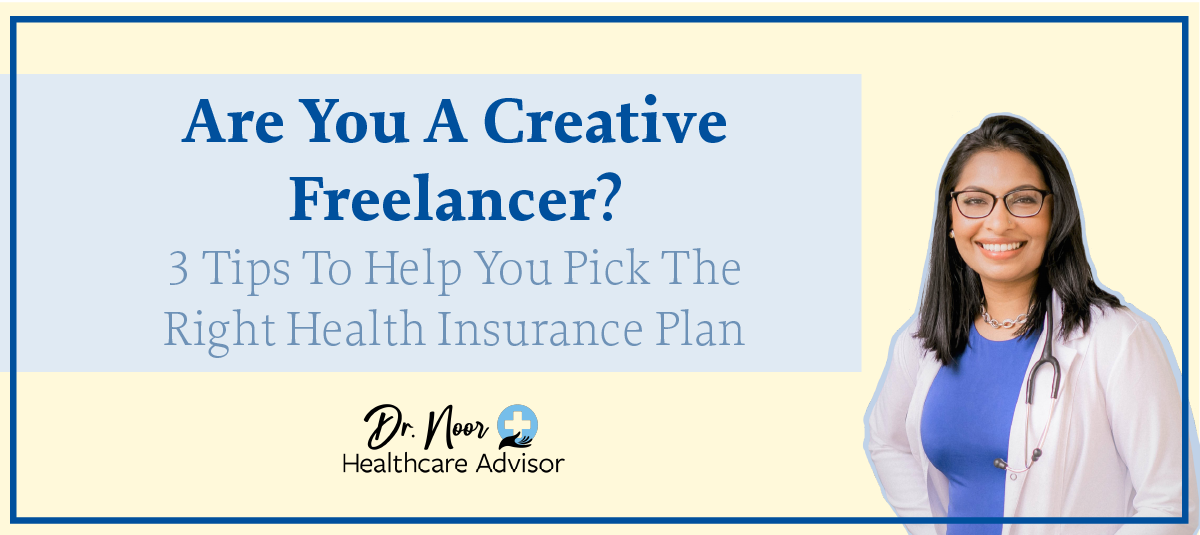Have you just embarked on your freelancing journey as a creative artist or creative content creator? Simply making that momentous decision is huge, hard and heartful.
Or are you a seasoned creative freelancer? Already basking in the glory of the freedom that is freelance?
The pandemic has demonstrated how we rely so much on creative content that is out there. With days and weeks of social isolation, we turned to our screens for solace in creativity and inspiration. I thank all you artists and creative freelancers out there for keeping us going.
If you juggle work in and outside the lines of writing, designing, videography, photography or even professional art – thank you.
But in all seriousness, are you taking care of yourself, too? In my experience, the biggest and most daunting deterrent to making the freelancing jump is…. health insurance.
Do you have the right health insurance plan to cover your medical expenses in the case of any unfortunate health condition? Now that there is no employer oversight or sponsored benefits, what are you supposed to do about health insurance benefits?
Experience tells me picking the right health insurance plan isn’t a piece of cake. In fact, it’s the number one dream killer for creative freelancers. It’s a lot to assess, research and manage.
I’m here to help you untangle this web of confusion. It’s natural to be confused about which health insurance is right for you. Here are some tips to help creative freelancers find the right health insurance plan.
Tip 1: Learn some of the health insurance terms
The glossary of health insurance terms is technical, confusing and… long.
I’ve listed a handful of health insurance terms you must know. These are:
- Premium
- Deductible
- Network
- Co-pays/co-insurances
- Maximum out-of-pocket
Read what these terms mean in detail via my article: “The Top 5 Terms You Need To Know To Successfully Navigate The Healthcare Marketplace”
Tip 2: Be aware of options, laws, news and dates
Do you even know what your health insurance options are? Are you eligible to get any sort of subsidy or tax credit from the government? Do you have to pay premiums in full? Is traditional health insurance even the right option for you?
Health insurance is based on state law, not federal law. So each state may have its own version and laws that directly impact what health insurance plans are available to you and what you are eligible to sign up for.
Where you live, down to the county, has a lot to do with your decisions for healthcare coverage in your state.
If you’re already enrolled in a health insurance plan, stay ahead of any updates that could potentially hamper your benefits. For example, rate increases and policy coverage changes. Network updates may impact whether or not you can continue seeking care from your same provider.
Potential global crises like inflation could affect your medical expenditure and out of pocket costs. You also need to be aware of the changes in your policy if your income grows.
To get a new plan or to make changes, know when the next open enrollment is and talk to your agent to stay up to date.
Read more about open enrolment via: “3 Questions To Help Evaluate Your Health Insurance Plan Every Open Enrollment Period”
Tip 3: Get professional help
For free!
Yeah, you read that right.
I’ve worked with so many creative freelancers and professionals who struggle with health insurance. I do my best to assess your situation, where you’re at and what you have before I even think about offering you any options.
I’ve been approached with the most difficult health insurance situations due to moving, strange contract terms, gender specific care options and my experience has allowed me to find a solution for all cases.
There are hundreds of insurance companies and plan options out there for you, but you need to be able to pick the right health insurance plan for YOU.
Read how I helped social media manager Sierra with her health insurance: “Helping Brands Aesthetically Elevate on Social Media Featuring Sierra Sanchez”
Schedule a 15-minute call with me so we can start talking about what you need, at your current stage of freelancing.





